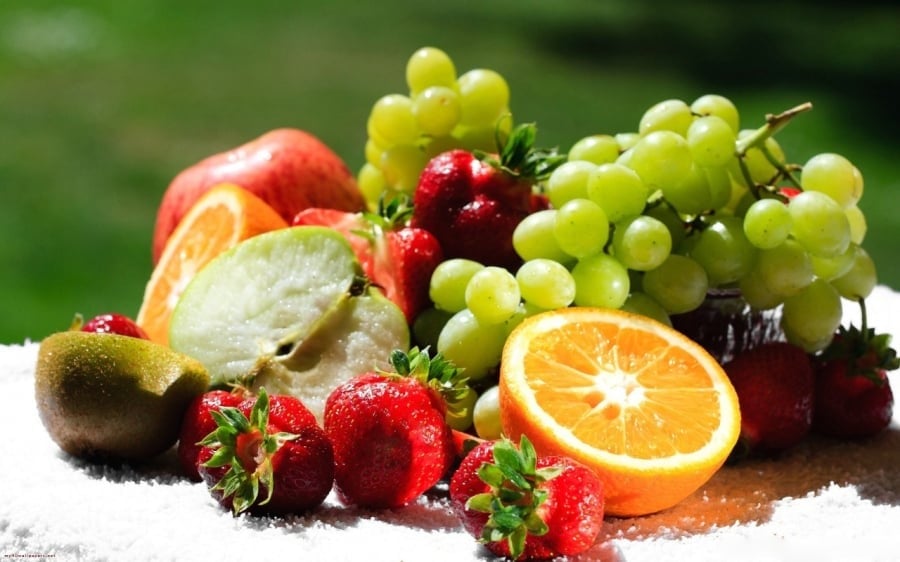Breakfast is often underestimated, with many people considering it just a simple meal to start the day. In reality, breakfast is the most important meal as it replenishes your body’s energy after a long night of fasting and provides the fuel you need to work or study effectively throughout the day. Here are some suggestions for preparing a delicious and nutritious breakfast.
Eggs
Eggs are a favorite due to their convenience, versatility, and delicious flavor. Eating eggs in the morning keeps you fuller for longer, helps control calorie intake, and maintains stable blood sugar and insulin levels. Notably, egg yolks contain lutein and zeaxanthin, powerful antioxidants that protect your eyes and reduce the risk of cataracts and macular degeneration.
While eggs do contain cholesterol, consuming them in moderation does not increase bad cholesterol. Instead, they help boost good cholesterol, lower the risk of heart disease, and improve insulin sensitivity. Vary your preparation methods, such as boiled eggs with salad, scrambled eggs with tomatoes, fried eggs, or an omelet, to make your breakfast more exciting and appealing.

Ripe Fruits
Fruits are an excellent source of essential vitamins, minerals, and antioxidants. Choices like bananas, apples, pears, kiwis, and avocados are ideal for a healthy and nutritious breakfast.

Oatmeal
Oatmeal is a fantastic breakfast choice among cereals. The beta-glucan fiber in oatmeal helps lower cholesterol, promotes a feeling of fullness, and stimulates the release of the hormone PYY, effectively curbing your appetite. Additionally, oatmeal contains antioxidants that benefit cardiovascular health and contribute to lower blood pressure.
However, oatmeal is not particularly high in protein (around 6g per 35g of cooked oatmeal), so be sure to pair it with milk, cheese, or eggs to ensure a balanced and nutritious breakfast.
Nuts and Seeds
Nuts and seeds, such as cashews, almonds, walnuts, and chia seeds, are nutrient-dense foods rich in protein, healthy fats, and fiber. These nutrients are essential for providing energy and keeping you satiated throughout the morning. Additionally, they are excellent sources of vitamins and minerals, including vitamin E, a potent antioxidant that protects cells from damage, magnesium for nerve and muscle function, and zinc for immune support and metabolic regulation.
To maximize the nutritional benefits of nuts and seeds, sprinkle them over your yogurt or oatmeal to add a crunchy texture and enhance the flavor. Alternatively, you can incorporate them into your breakfast by adding them to toast, baking them into cookies, or using them as a tasty salad topping.
Milk
Morning is the best time for your body to absorb nutrients, so including milk in your breakfast is crucial for providing calcium, protein, and B vitamins. These nutrients are essential for maintaining bone health, boosting energy levels, and supporting the nervous system.
Cow’s milk is a popular choice due to its high protein and calcium content, which contributes to muscle and bone development. Goat’s milk is also an excellent alternative for those allergic to cow’s milk, as it is easier to digest and rich in vitamins and minerals. Yogurt not only provides protein but also introduces beneficial bacteria to your gut, promoting digestive health and boosting immunity.
You can drink fresh milk, add it to your cereal, or combine yogurt with fruits and nuts to create a well-rounded, tasty, and nutritious breakfast.
The Ultimate Mom-to-Be Guide: 10 Tell-Tale Signs That Your Little One is Absorbing All the Goodness
Is your little one not meeting growth milestones, despite your best efforts with a strict sleep and feeding schedule? Are you concerned about your baby’s frequent tummy troubles, fussiness, and poor digestion, even after trying multiple formulas? It might be time to consider a crucial factor that is often overlooked: your baby’s absorption capabilities.





































